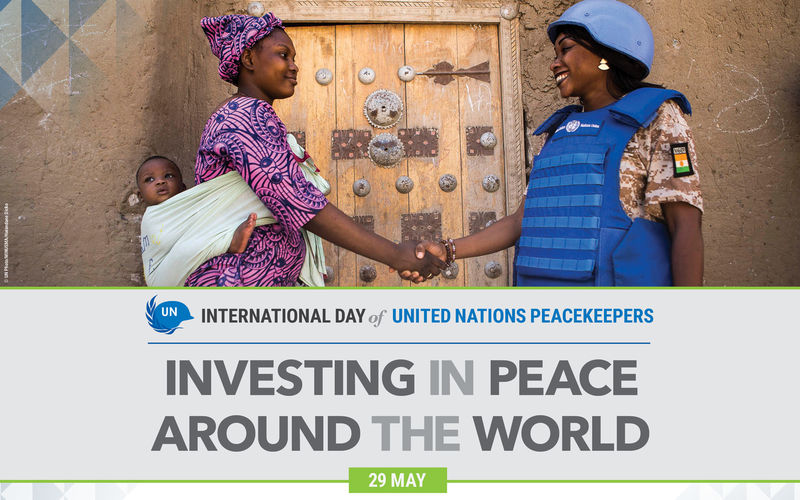The theme for the 2017 International Day of UN Peacekeepers is “Investing in Peace Around the World.” The Day offers a chance to pay tribute to the uniformed and civilians personnel’s invaluable contribution to the work of the Organization and to honour more than 3,500 peacekeepers who have lost their lives serving under the UN flag since 1948, including 117 last year.
Peacekeeping is an investment in global peace, security, and prosperity. It is a flagship enterprise of the United Nations. Today, it deploys more than 113,000 military, police and civilian personnel in 16 peacekeeping operations on four continents. It is a flexible, evolving instrument that brings together political, security and technical tools to assist countries make the difficult transition from conflict to peace.
Over time, peacekeeping has grown from simply monitoring ceasefires to protecting civilians, disarming ex-combatants, protecting human rights, promoting the rule of law, supporting free and fair elections, minimizing the risk of land-mines and so much more. They have also worked to ensure that women are represented in peace processes, political life, and in branches of government including in uniformed services. All of these efforts are fundamental investments in building lasting peace.
Despite the breadth of its operations, peacekeeping’s budget is less than one half of one percent of global military spending.
Every mission aims to save lives, prevent mass atrocities, set the stage for peace and then close. In Côte d’Ivoire, the United Nations will complete the peacekeeping phase of its engagement with the country at the end of June after successfully assisting the country in restoring peace and stability following the post-2010 election crisis. In Haiti, MINUSTAH’s mandate will end in October, when a smaller successor peacekeeping mission focusing on the rule of law will begin. The UNMIL peacekeeping mission in Liberia, which has made progress in restoring peace, security and stability in the country, will end next March.
Other mission deployments: In South Sudan, more than 200,000 civilians continue to seek shelter at UN bases. In Mali, the peacekeepers are supporting the implementation of the peace agreement and gradual extension of State authority often under very dangerous conditions. In many countries, peacekeepers have addressed the problems of landmines and explosive remnants of war.
Currently, UN peacekeeping operations receive contributions of military and police personnel from 124 Member States. This impressive number reflects strong global confidence in the value of UN peacekeeping.
While the official International Day of United Nations Peacekeeper’s Day is on 29 May, UN Headquarters in New York will celebrate on 24 May. The Secretary-General will preside over a wreath-laying ceremony in honour of all peacekeepers who have lost their lives while serving under the UN flag. In addition, the Dag Hammarskjöld Medal will be awarded posthumously to the peacekeepers who fell while serving in the cause of peace, in 2016.

